Off-Season Training
Walk into an arena in the month of February and you’ll find multiple off-season and summer hockey programs available to hockey players of all ages on the community bulletin board. But how much hockey is too much exactly?
According to Brent Sutter, playing hockey year-round, may actually stunt an athlete’s development and therefore do more harm than good. (full article)
Agreeing with Sutter, I’ve found myself explaining the same words to the parents of my students year after year. Therefore, quality instruction and coaching during the off-season should be every goaltender’s focus during the off-season rather than how many times they’re able to get on the ice. As most goaltenders know, goaltending requires just as much mental, theoretical, and physiological growth and maturity as it does physical growth and development. So why would goaltenders put themselves into positions where they are unable to apply what they’ve learned? After all, we teach with sets of smaller repetitions in order to ensure that goaltenders apply the movements that they’ve learned to the best of their technical ability. That way, they can execute these techniques efficiently during their games throughout the winter season.
At Goalie Army Academy, we practice what we preach. We feel that it’s important for our students to focus on hockey throughout the winter hockey season by getting on the ice as much as possible via games, team practices, clinics, and for those who have a dry land workout regimen, ensuring that they’re sticking with their program and getting to the gym. However, once the season ends, then students should remain active by looking to other sports to engage them in new activities, new ways of training, and new theories of play. By doing so, athletes will utilize and develop muscles which they may not get a chance to use during the hockey season. They will also further develop their coordination in a way that is different than what is required on the ice.
On-ice and off-ice training year round may become stagnant and result in a lack of development and progressive advancement. Doing so may actually cause more harm than good as athletes may begin to feel uninterested due to their lack of progress. Therefore, during the off-season, we suggest sticking with on-ice technical development clinics once or twice per week as a maximum (train smart – not hard). As the end of the off-season approaches, goaltenders may want to push themselves via a couple of weeks of high tempo, and fast paced hockey schools or dry land programs in order to get them back up to speed and prepared for their training camps.
The “Less Is More” argument can be a valid one when discussing off-season training. Parents of goaltenders should therefore be wary of enrolling their kids into too much “organized” hockey throughout the summer as these programs may counteract the technical training that their children may be taking part in due to the likely possibility of picking up bad habits on the ice. The quality of many summer hockey programs have actually become watered-down with the increase of programs available to hockey players. Therefore, goaltenders may not be seeing plays develop the way that they should, or face shots that would be as challenging as their winter season leagues. Pick-up hockey, and team practices are generally the worst culprits for causing more harm than good for the technical development of a goaltender. Goaltenders are more likely to do whatever it takes to stop the puck during this type of activity rather than focus on their technical development, increasing their comfort levels with the movements, and then adding speed and power into the mix.
In a nutshell, if the ultimate goal of the off-season is to become a better athlete for the winter season, then focus on advancing technical movements, coordination, and applying a range of theory should be the method of planning an off-season regimen. We understand that there are goaltenders out there that live, breathe, and eat hockey all year round. However, the off-season should apply the quality over quantity theory, while taking a goaltender outside of their comfort zone via other sports activities in order to achieve regular season success.
Happy training!


Leave a Reply